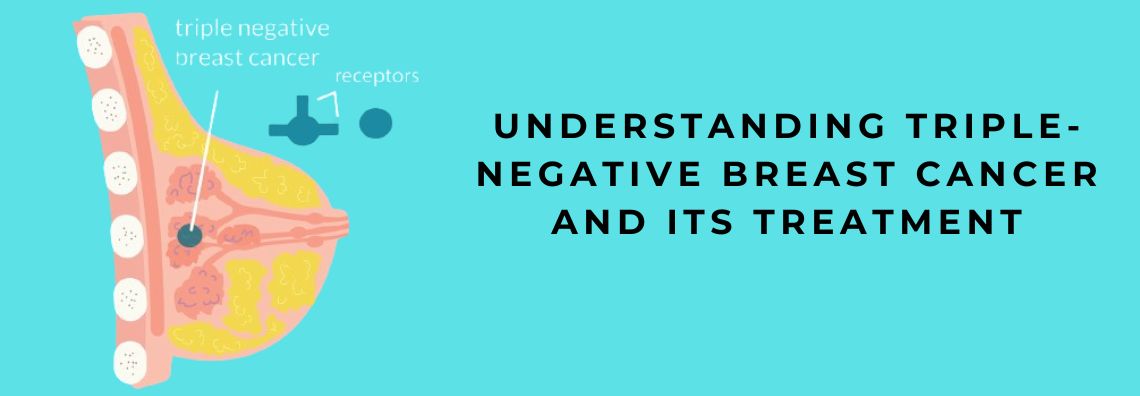
Your health is our priority so, we are here with an important piece of information for you.
Know about triple-negative breast cancer (TNBC) and its treatment in this guide.
What Is Triple-Negative Breast Cancer?
A type of breast cancer that does not have three common receptors, estrogen receptor, progesterone receptor and human epidermal growth factor receptor is a triple-negative breast cancer. Low levels or lack of these three receptors can make it harder to treat this cancer with hormone therapies or drugs. That is why practitioners adopt different treatments to deal with types of cancer.Symptoms
Some symptoms of triple-negative breast cancer are similar to other breast cancers. Have a look at some of them:- Pain in the breast or nipple.
- Swelling in part of a breast.
- Dry, flaking or red nipple or breast skin.
- Nipple discharge.
- Lump
Causes
Although practitioners cannot tell the exact cause of triple-negative breast cancer, here are some factors that can lead to it:- Family History: If someone in your family has breast cancer or other cancer, that can increase the chances of developing triple-negative breast cancer. Genes play an important role in spreading the cancers.
- Lifestyle: Your diet, exercise routine and the environment you live in are certain factors that can develop the risk of triple-negative breast cancer. Although it is not said that these are the reasons, one must maintain a healthy lifestyle.
- Hormone Receptor Status: One feature differentiating this cancer from others is hormone receptor status. If estrogen and progesterone receptors are absent then it means triple-negative breast cancer will not respond to hormone therapies.
Chances Of Getting Tripple-Negative Breast Cancer (TNBC)
Triple-negative breast cancer is a rare cancer and accounts for 10-20% of all breast cancers. People who are more likely to get affected are:Younger Women
Triple-negative breast cancer is more likely to affect younger women, who are under 40 because genetic risk factors are more often found in them.Black Women
Black women are at higher risk of triple-negative breast cancer, than any other group of women. Take a look at studies that say that younger black women are at higher risk of breast cancer than white women. Have a look at some factors:- Social Factors: Black women face barriers in society such as lower income, higher prices of medications, insurance issues and transport problems.
- Environment: The poor environment and lifestyle of black women stress them out and poor nutrition leads to a lack of sufficient vitamins and minerals.
- Genetics: Certain gene mutations are higher in black women, especially the BRCA1 gene. This increases the risk of having triple-negative breast cancer.